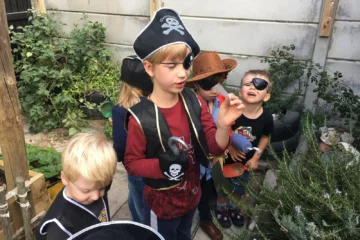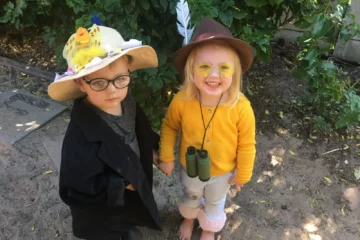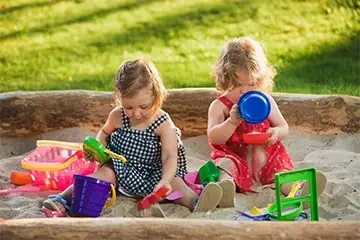“It is easier to build strong children than to repair broken adults “ – Frederick Douglass
Introduction:
On Saturday 21st October 2023 I attended The Bloom Early Child Development (ECD) Conference which was held at Somerset House Private School in Somerset West. It was a wonderful privilege for me to attend this conference as I was able to meet many professionals in the field of ECD. Many of them shared their knowledge and expertise during the conference. It also provided me the opportunity to keep abreast with changes in ECD. The conference aim is to support ECD teachers and
principals whilst providing valuable information and education on a wide variety of topics.
I thought I would share one of the topics that was presented by Faye Taylor an Educational Psychologist working in the school system for 17 years. Her topic was Self-Regulation, co-regulation and emotions. I am passionate about this topic myself. I am pleased to say that a lot of the points, Faye shared with us, I already practice everyday at our playschool.
I am also excited that finally our education system is acknowledging that Early Childhood Development is the most important years in a child’s life. They are starting to realise the value of Emotional Intelligence (EQ) and how it impacts children’s learning abilities, social development and how connection is made in relationships. It all begins in children from birth to 7 years. (ECD)
What is the meaning of Self-Regulation?
Self-Regulation is the ability to understand and manage behaviour and reactions to feelings and things happening around you. It is important to know that Emotional Intelligence is a major skill and consists of 5 elements. These elements are self-awareness, self-regulation,motivation, empathy and social skills.
Why is Self-Regulation important?
As a child grows, self-regulation helps them:
- Learn at school because self-regulation gives your child the ability to sit and listen in the classroom
- Behave in socially acceptable ways because self-regulation gives your child the
ability to control impulses - Making friends because self-regulation gives your child the ability to take turns in games and conversations, share toys, and express emotions in appropriate ways
- Become more independent because self-regulations gives your child the ability to make appropriate decisions about behaviour and learn how to behave in new situations with less guidance from you.
What is co-regulation and why is it important?
At its simplest, co-regulation is when an adult, teacher or care giver helps a child self soothe in times of stress. Its a building block for self-regulation, and a big step in learning how to handle their own feelings. This is why it is so important that the child in their early development years is with a teacher or caregiver that has self-regulation and understands emotional intelligence.
The teacher or caregiver should remain calm in emotional situations and this in turn calms the emotional child while keeping the rest of the children in the group relaxed. Children learn to imitate this behaviour too. At our playschool we focus on this area of development as it is so valuable to your Child’s growth.
“Co-regulation is where one persons nervous system calms down another persons.
It happens when a caregiver is attuned to the needs of the child. They can use their body, tone of voice and their breath to anchor safety for a child and calm them down. “ – Jennifer Hunck
What every child needs for learning Self-Regulation?
- Being with calm adults who provide safety and security.
- Having predictable routines and clears boundaries.
- Being listened to and acknowledged.
- Watching the adults in their life manage their own feelings and behaviour.
- Knowing the names of feelings and being able to identify their feelings by name.
- Having adult support when they are upset, tired or angry.
- Having unstructured time to play and learn at their own pace in small group settings.
Benefits of Personal connection and Self Regulation
In early childhood development (birth – 7 years) it is vitally important for children to feel safe and connected to their parents, care givers, teachers, friends etc. for them to develop self regulation.
Playschools and schools that offer a small group settings provide safety and personal connection. They are less overwhelming for young children and usually have relaxed outdoor areas to provide space for children to explore and enjoy their natural environment.
When children feel safe, its aids their ability to learn. When a child connects with their teacher they have the ability to do anything.
Adults that are calm and respond well will bring the child’s chaos and melt downs to a calm state. This is an asset in difficult situations.
Teaching children to breathe deeply when they are having a melt down teaches them how to calm their emotional system down naturally and instantly. This is teaching the child a valuable life skill.
Children are able to process their feelings in healthy ways while being able to function and thrive.
Mirror neurons are how humans first learn to think, feel, act, behave and respond. Children make these connections by observing their parents, siblings, caregivers and teachers. It is the start of attunement and attachment and forms a crucial neural blueprint for how they will view and interact with the world.
A great way to calm down an emotional child:
Teaching children the value of breathing deeply when they are upset, frustrated, angry or overwhelmed is the quickest way to calm a child down. We all shallow breathe when we are emotional. Learning to naturally calm your body down and restore calm comes quickly through deep breathing. If you place your hand on your stomach you know you are deep breathing when you feel your stomach rise and fall. By placing a teddy bear on your Child’s stomach will have the same effect for them to see.
Another method is to take a Child’s hand and touch the tip of their thumb and ask them to think of something they love to see. Then move to their index finger and ask them to think of something they love to touch. Take their middle finger and ask them to think of a sound they love to hear. Take the the ring finger and ask them to think of something they love to smell. Finally take their little finger and ask them to think of something they love to taste. Finish by tracing your finger over their hand and saying “I am Calm, I am Safe and I am present”.
In Closing:
We realise that small group settings create warm atmospheres and personal connections with caregivers and teachers and this provides safety for children. It gives children the opportunity to play and learn at their own pace, while they learn about their emotions. This has a huge impact on them as they grow and get ready to enter school. Self-regulation is a priority in child development.
“ Parenting is 80% connection and 20% guidance because until children feel connected they have no reason to follow your guidance. “ – Dr Laura Markham


